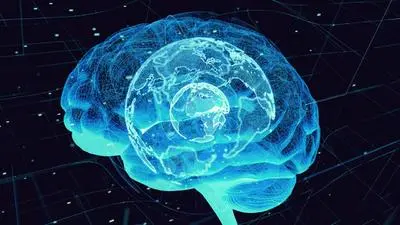The Case for Idealism
Bernardo Kastrup
About the Course
The idea that reality exists outside and independently of our minds seems so obvious as to be indisputable. Yet in philosophy, there is a rich tradition of turning this model on its head – arguing that reality is not fundamentally material, but fundamentally mental. While this idea, metaphysical idealism, has gone out of fashion, evidence is beginning to mount up suggesting it might actually be right.
What exactly is materialism, and why is it so popular? How can we rate a metaphysical system, and why does materialism fail? What is the hard problem of consciousness, and why is it important? What is panpsychism, and does it succeed where materialism failed? If there is only one consciousness, why does it seem like we are separate beings? Why do hallucinogens reduce brain function, and why does this matter?
World-leading defender of metaphysical idealism Bernardo Kastrup, author of The Idea of the World and Meaning in Absurdity, draws upon analytic philosophical arguments, his scientific background, and a deep knowledge of the philosophical tradition of metaphysical idealism to explain why reality is fundamentally mental.
By the end of the course, you will have learned:
- Why materialism is unscientific.
- What it means to have a good metaphysics.
- Why panpsychism is more similar to materialism than is commonly thought.
- Why the similarities between the universe and the brain are no coincidence.
- How dissociative identity disorder can explain more than we realise.
As part of the course, there are in-video quiz questions to consolidate your learning, suggested further readings to stimulate a deeper exploration of the topic, discussion boards to have your say, and an end-of-course assessment set by Bernardo Kastrup.
IAI Academy courses are designed to be challenging but accessible to the interested student. No specialist knowledge is required
About the Instructor
-
Bernardo Kastrup
"The brain doesn't generate mind in the same way that a whirlpool doesn't generate water."
Bernardo Kastrup is a Dutch computer scientist, philosopher, and one of the most prominent defenders of "metaphysical idealism" - the notion that the world originates in the mind, instead of being independent of our experience - in the academic world today.
Bernardo has worked as a scientist in leading laboratories across the world including CERN and the Philips Research Laboratories, and he is a regular contributor to Scientific American.
As developed in such texts as Why Materialism is Baloney and The Idea of the World, Bernardo's stance is that "the body is in mind, not mind in the body."
Course Syllabus
-
Part One: Materalism's MistakesSome think consciousness arises from the physical, others think that the physical is itself conscious. In part one of this course, Kastrup deconstructs the missteps of materialism and the mistakes of panpsychism.
-
Part Two: Why the Evidence Points to IdealismWhat do new developments in neuroscience suggest about the nature of reality? In part two of this course, Kastrup explains the fresh evidence that vindicates idealism.
Suggested Further Readings
- Kastrup, B., The Idea of the World: A Multi-Disciplinary Argument for the Mental Nature of Reality, (Winchester: IFF Books, 2019).
- Kastrup, B., Meaning in Absurdity: What Bizarre Phenomena Can Tell Us About the Nature of Reality, (Winchester: IFF Books, 2012).
- Chalmers, D. J., The Conscious Mind: In Search of a Fundamental Theory, (Oxford: Oxford University Press, 1996).
- Nagel, T., Mind and Cosmos: Why the Materialist Neo-Darwinian Conception of Nature is Almost Certainly False, (Oxford: Oxford University Press, 2012).
- Strawson, G., Realistic Monism: Why Physicalism Entails Panpsychism, (Journal of Consciousness Studies, 2006).
- James, W., Essays in Radical Empiricism, (Cambridge, MA: Harvard University Press, 1976 [1912]).
- Schopenhauer, A., The World as Will and Representation, (Cambridge: Cambridge University Press, 2010 [1818]).


